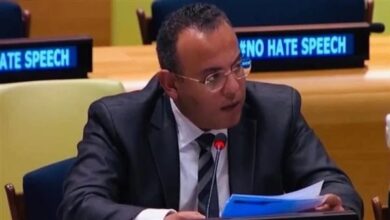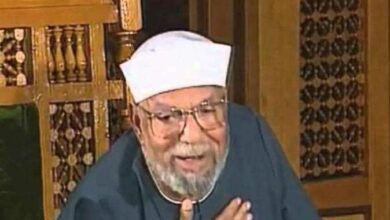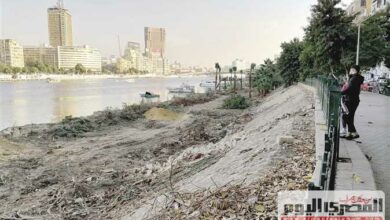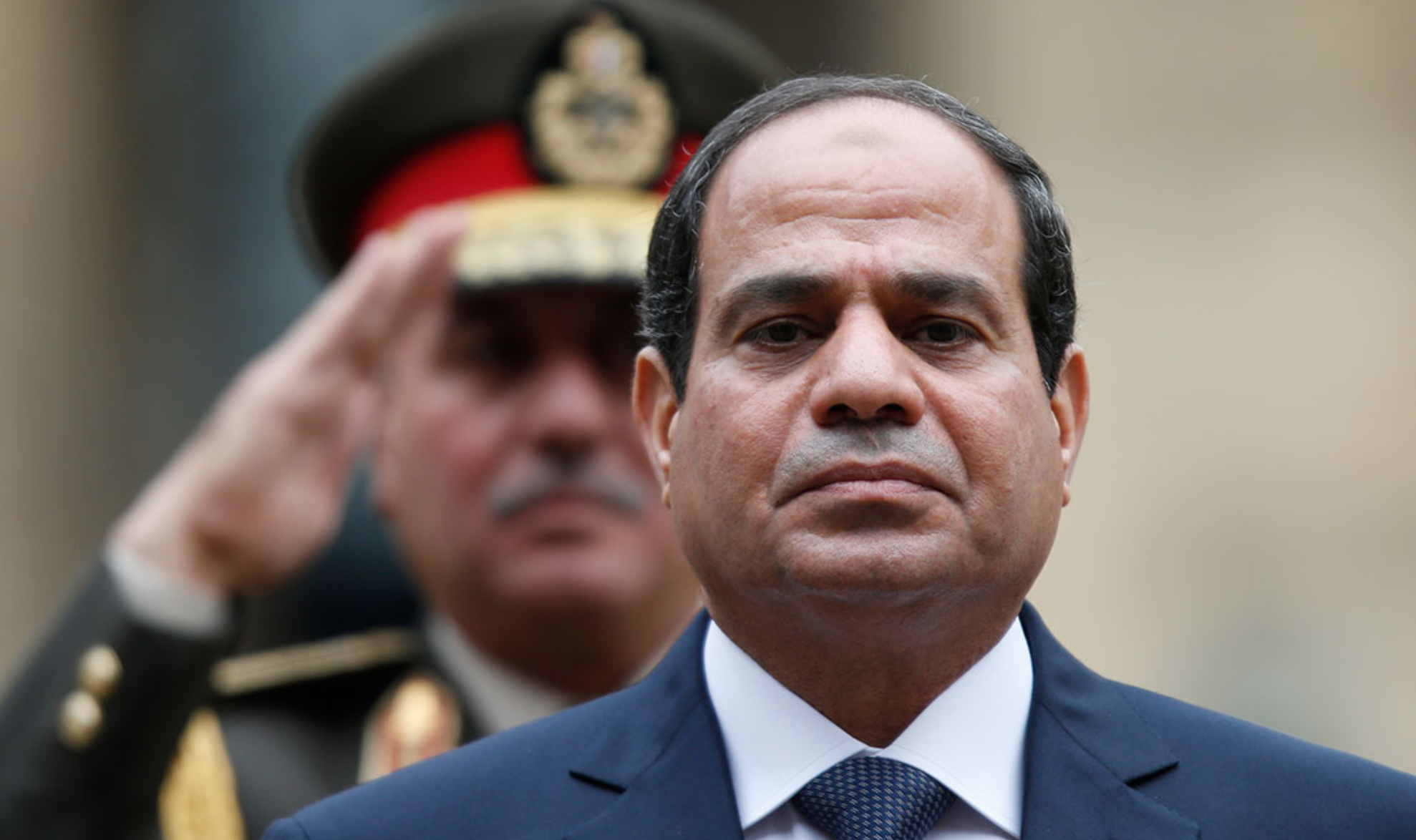In an exclusive interview with Al-Masry Al-Youm, Arab League chief and ex-foreign minister Amr Moussa spoke about the many challenges currently facing Egypt, prospects for constitutional reform and his proposed nomination to the presidency.
Al-Masry Al-Youm: You have become central to Egyptian and Arab discussion about Egypt’s political future. The respect you enjoy among the Egyptian public has moved some to recommend you for the presidency. Can you comment on the situation now?
Amr Moussa: I’m an Egyptian citizen who shares the concerns and worries of the people–who have the right to be anxious–but that does not necessarily mean we are blaming anybody. The analysis of the general conditions and the daily problems of the Egyptian people, as well as Egypt’s current way of thinking about the future, reveal a state of tumult.
For example, let’s talk about the education system, which has not yet been improved. It produces an outcome that matches neither local nor international demand, putting society in a tight spot. We need further deliberations on the issue of education, with more focus on its quality, taking into consideration modern standards. There should be a review of modern teaching methods, what material can be taught and the foreign language that has to be learned.
The number of those who have the opportunity for a good education is few, and isn’t representative of the 80 million Egyptians who should be granted a chance for excellence. If the condition of the education system remains the same, with only temporary and informal solutions, its future will be endangered.
Another issue related to the same problem is that of scientific research and its decreasing contribution to the general welfare. We also have universities which used to be among the best in the world, but are now deteriorating. I wish we had benefited from the knowledge and experience of [scientists] Ahmed Zweil and Mustafa el-Sayyid, along with others like them.
Al-Masry: What are the other problems, besides education, that Egypt faces?
Moussa: We also need to reconsider our health care system. We have so many medical school graduates that it is imperative that we have a medical center in each village. And for every few villages, there should be one hospital. And so on, until we reach a point where every governorate is fully-prepared to meet all health care needs.
I’m talking about providing medical care for the underprivileged. The state should provide them with good and affordable medical services where they live. Though we’re exerting considerable efforts in this regard, we’re not coping with development and the population increase. When I discussed the issue of establishing medical centers in villages with the minister of health, he replied that they already exist, saying that the question should be about their capabilities and the way they handle the population increase.
I got back from the countryside recently after attending several family events. I noticed that the village has turned from a beautiful, developing place–with its own schools and clubs–into a paragon of poor planning.
By the way, if you have a good look at Cairo’s El-Tahrir Square, you’ll discover it is one of the ugliest places in Egypt. The square is a total mess as a result of insufficient spending on its design and planning–though such a vital square should be planned by the best architect in the world. The state needs to posses a set policy for handling the affairs of the capital, followed by smaller provinces and villages. We can’t ignore the declining state of the capital and our major cities in terms of cleanliness, planning and traffic.
These are a few examples of the problems that make people anxious. We’re all responsible for this country, whether we are officials or common citizens. We must have an answer to the question, "How will Egypt look in 15 years?" Society is beginning to acquire some unfortunate characteristics, one of which is the belief that talking about the problem is an achievement in itself.
I believe that our anger and concern is justified. We fear for the future of the country. Coming generations will suffer enormously if we fail to solve the basic problems of our society.
Al-Masry: What are the reasons for the problems you mentioned?
Moussa: As long as the government isn’t subject to parliamentary accountability, it will act according to its will. This can only be solved through democratic participation.
Nations are composed of two main aspects, the citizen and the law. If the common citizen isn’t taken into account due to his poverty and helplessness, nobody will take him seriously. And if the law is full of loopholes, nobody will respect it either. These are the reasons for the social unrest.
Al-Masry: By what means can democratic development be achieved in Egypt?
Moussa: The constitution is the first means–it must express the will of the nation, its composition and its perceptions of the future.
Al-Masry: What should be done with the constitution?
Moussa: It’s good that you use the plural pronoun "we." The new century requires a set of new measures defined by the constitution, but that doesn’t mean we should amend the constitution every couple of years. Our action should be of a nationalist, not partisan, nature. Legal figures at universities and in the judiciary should share their views on this. These requirements aren’t a condition for reform, but rather a part of it. They have nothing to do with elections.
As for constitutional reform, it has to be discussed as a part of a wide-ranging national dialogue in which people share their diverse opinions. Then, the constitution shall be formulated by a selective team of experts. I’m talking here about a plan for progress and not an election process.
Al-Masry: What are the constitutional amendments that you think are necessary?
Moussa: For a start, there should be a general state of accord about the need for a new constitution, aimed at a better future for the country and based on strict and sober principles. The next step is determining the details and the articles that guarantee the enforcement of its provisions.
When I say that the issue of the constitution should be handled objectively, nobody should deal with that sensitively. If one has a different opinion, he cannot be considered an enemy. On the contrary, we have to study the idea together through institutions, syndicates and political parties–far from any kind of sensitivity, as we are all working for the interests of our country.
Al-Masry: There’s been much talk about Articles 76 and 77 of the constitution. How would you comment?
Moussa: Article 76 is restrains would-be presidential candidates. Certain measures and standards have to be set for nomination to the top post. But that doesn’t mean closing the door in the face of all applicants. As for Article 77, it is at odds with the natural system of life: the succession of new generations to carry on the development process.
There should be a deadline for any president, after which he leaves his post–the same for any other post. Some countries provide good models in that respect, such as USA, France, Britain, India, Brazil and South Africa. Those countries achieved progress due to many factors, the most important of which has been the open democratic system they chose to adopt.
Al-Masry: What about Article 88, which abolishes judicial supervision of elections?
Moussa: I support the idea of imposing international observation as much as possible. It isn’t a shame to do that. Both developed and developing countries have welcomed the idea. The Arab League sent committees to assist UN observers in supervising elections in different countries, so we don’t have to be overly sensitive about the issue.
We have nothing to fear as long as elections are fair–let them come and observe it. It’s better for the reputation of the state.
Al-Masry: What about those who say the practice constitutes "interference in Egypt’s internal affairs"?
Moussa: It does not constitute "interference." There’s nobody coming from abroad to tell you who to vote for. The Americans themselves have asked for observes. There’s nothing wrong with international observation. It’s not a stain on Egypt’s honor, but rather a positive development.
Al-Masry: Do you think Egypt is approaching a development crisis?
Moussa: We’re now in the middle of a crisis emanating from public concern and discomfort about the future of Egypt. The poorest sectors of society feel they are not enjoying full rights of education and health.
Al-Masry: Does Egypt suffer from an absence of social justice?
Moussa: "Social justice" is a very loose term, so I can’t give you a definite answer–but I’m sure the underprivileged classes would say so.
Al-Masry: What can the Egyptian citizen do to help resolve this dilemma?
Moussa: All citizens, including you and me, should express our concerns and worries in this decisive stage. My actions are still limited since I’m still acting as the head of the Arab League. I used to say that Egypt needs a "comprehensive program for progress," and many of us believe the country lacks viable human development schemes.
National dialogue should be accessible to everybody, and all views should be listened to. Difference of opinion should not serve as catalysts for irrational political feuds.
Al-Masry: Prominent writer Mohamed Hassanein Heikal put you at the top of his list for membership in his proposed "Board of Trustees for the State and Constitution." Any comments?
Moussa: I appreciate his proposal, but I think he was only making suggestions. He wants to say that we as citizens must form a committee to discuss our views openly out of concern for the future of the country.
Al-Masry: Some people have called for nominating you as a candidate in upcoming presidential elections. Would you ever consider this?
Moussa: I appreciate the sentiment, but in order to be a candidate one is faced with a set of bitter choices. The first option is to be part of a political party. It is against my principles to join a party which I did not help establish, or whose basic ideas I did not help formulate. It would be a bad start to simply exploit a given party simply as a means for nomination. This is flagrant political opportunism. So I’m ruling out that choice.
As for the second option–to run as an independent candidate–this is an almost impossible endeavor. It’s true that the constitution gives the right to any citizen to run for presidency, as long as he sees himself eligible–but such an attempt cannot be successful without the means required to achieve a result.
A lot of prominent personalities have been suggested, but these people are too respectable to serve merely as window-dressing for the electoral process.
Al-Masry: Are there too many obstacles standing in the way of candidacy?
Moussa: Yes, there are too many obstacles. If I, for example, tell you that I will run for the presidency, you’ll ask me what party I’m going to join, or how I will garner the support of 250 MPs if I’m to participate as an independent.
Such restrictions should be done away with, especially with personages such as [International Atomic Energy Agency head Mohamed] ElBaradei thinking about nomination.
Al-Masry: Could you nominate yourself?
Moussa: I’m a practical person, not a dreamer. True politics are based on seriousness, not pretense and showing off. I don’t need any more fame, so I won’t seek it through becoming a candidate. The question is whether nomination is possible, and the answer is "the way is blocked."
Al-Masry: But if the door opens?
Moussa: Then things will be different. But there are many people who are ready to serve Egypt, either as president or in another position.
Al-Masry: Does that mean you’re ready to serve the country in any post?
Moussa: As soon as I leave the Arab League, I’ll return to my role as an Egyptian citizen and try to be as useful as I can.
Al-Masry: When are you leaving the Arab League?
Moussa: I was close to resignation more than once. The thing that has always stopped me has been my fear of causing a convulsion within the organization, especially during the current state of inter-Arab disharmony and international alarm. I have only one year and a half to go, and I think this will be enough.
I worked for ten years as ambassador, ten years as minister, and I’m about to complete ten years as league secretary-general. This long tenure of public work has given me a powerful perspective about the future of Egypt, so I have the right to be one of those on whom the country depends on its journey towards progress.
Al-Masry: Can you comment on ElBaradei’s conditions for his own nomination for the presidency?
Moussa: He’s expressing his position in the way he believes to be right. He didn’t deserve all the criticism he subsequently faced. His views should have been met with impartial discussion of the issues raised. The attacks on him were unacceptable.
Al-Masry: Was the campaign against him a form of intimidation against those considering nomination?
Moussa: Maybe. But even if it worked with one person, it won’t work with others who will emerge down the line. I knew there would be a counter-attack, but I didn’t expect it to be so fierce. Yet it did not seem to have an effect on the people.
Al-Masry: Were you disturbed by the attacks on ElBaradei?
Moussa: Of course. It was improper. You are allowed to differ with somebody’s opinion. In this regard, I applaud the attitude of journalist Abdel Moneim Said, who has expressed his differences in opinion with me, which he did in a sober manner that prompts you to respect his writing and consider his views. As for the critiques that attack simply for the sake of attack, they’re not even worth reading.
Al-Masry: Has the affair prompted you to reconsider your next step?
Moussa: When someone takes a decision, he must bear the consequences. The only thing I have in mind is the country’s best interests–especially given the current set of conditions, which forces one to be prepared for sacrifice.
Al-Masry: What kind of relationship do you have with ElBaradei? Are you in contact with one another?
Moussa: There is a degree of affinity between ElBaradei’s family and my mother.
Al-Masry: Based on your well-known relationship with President Mubarak, do you think he would benefit by running against strong contenders?
Moussa: If Mubarak runs for presidency–which I think will happen–the course of events will be different. Mubarak is a powerful candidate, boasting a history he can lean on– everybody is anticipating his decision in this respect.
As for my relationship with him, this is marked by cordiality. We are aware of each other’s positions on both national and regional issues.
Al-Masry: How do you view Gamal Mubarak and the controversy surrounding his anticipated presidential candidacy?
Moussa: He has the right to be nominated. I know him as an ambitious young man who aims to play a role in public life. But the idea that he might become president has been the subject of speculation by everybody, even though he himself has not commented on it–leaving the whole matter within the realms of the theoretical.
Al-Masry: Can Egypt adopt a parliamentary system of governance?
Moussa: Of course it can. Egypt is not an exceptional case.
Al-Masry: Which political system do you believe best suits Egypt?
Moussa: I think it’s better to have a presidential system governed by a strong constitution. A parliamentary system means that the post of president is symbolic, with the PM possessing actual power–as is the case with Britain, Spain, Germany and India. In a presidential system, the president is elected by his party–as in Brazil, France and Mexico.
The Egyptian constitutional and legal systems follow the French example. The French people chose that system because they believe it is the best system for their country. Likewise, we should be thinking of what is best for Egypt and disregard all other considerations.
Al-Masry: Let’s assume that you become president. What would your first decision be?
Moussa: Assumptions bring wishes, not decisions, and Egypt is in desperate need of decisive decisions–especially decisions regarding a comprehensive, well-planned program for development.
Translated from the Arabic Edition.




